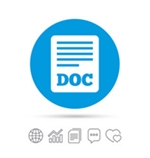KONSEP IDEALISME WARTAWAN DALAM INDEPENDENSI MEDIA MASSA
Abstract
Journalists are members of the press who play an important role in the delivery of information to the public. The important role of journalists will of course be greatly influenced by their idealistic attitudes to maintain a mindset that they think is right about the media work they do. The purpose of this study was to determine the concept of journalist idealism in the context of mass media independence. This study uses a qualitative method with a methodological approach and study approach. The informants in this study were journalists and informants related to the mass media. The results showed that technological developments and changing political conditions had a new influence on the social life of journalists themselves, especially in promoting a strong attitude of professionalism. The determination of principles by prioritizing journalistic ethics and unchanging idealism presents challenges for journalists. The mass media that moves by prioritizing the market mechanism or media capitalism will give a negative stigma to the journey of the mass media. Therefore, the mass media and journalists must be able to control themselves and the institutions so that they can run a press institution without any element of interest from certain parties.
Full Text:
PDFReferences
As.Haris.Sumadiria, 2005. Jurnalistik Indonesia, Menulis Berita dan Feature, Panduan Praktis Jurnalis Profesional. Penerbit PT. Remaja Rosdakarya: Bandung.
Cardoso, Gustavo. 2006. The Media in The Network Society: Browsing, News, Filters, and Citizenship. Lulu.com
Dimmick, J & Rothenbuhler, E. 1984. The Tehory of The Niche : Quantifying, Competition Among, Media Industries, Journal of Communication 34.
Hardani, S.Pd., M.Si., D. (2020). Metode Penelitian Kualitatif dan Kuantiatif. In
Journal of Chemical Information and Modeling (Vol. 53).
HM, Zaenudin. 2011. The Journalist: Bacaan Wajib Wartawan, Redaktur, Editor,& Mahasiswa Junalistik. Bandung: Simbiosa Rekatama Media.
Harsono, Andreas. 2010. ‘Agama’ Saya Adalah Jurnalisme. Yogyakarta: Penerbit Kanisius.
Harymurti, B. 2011. Konsep Pers Profesional menurut Kode Etik Jurnalistik dan UU Pers.
Hasibuan, Malayu. 2000. Manajemen Sumber Daya Manusia. Jakarta: PT Bumi Aksara. Universitas Sumatera Utara.
Ibrahim. (2015). Metodologi Penelitian Kualitatif. Bandung: Alfabeta.
Mosco, Vincent, 1996, The Political Economy of Communication: Rethinking and Renewal. London: Sage Publications
Nugroho, Y., DA. Putri, dan S. Laksmi. 2012. Mapping the landscape of the media industry in contemporary Indonesia. Report Series. Engaging Media, Empowering Society: Assesing media policy and governance in Indonesia through the lens of citizens’ right. Research collaboration of Centre for Innovation Plicy and Governance and HIVOS Regional Office Southeast Asia, Funded by Ford Foundation. Jakarta: CIPG dan HIVOS.
UU RI Nomor 40 Tahun 1999 tentang Pers
UU RI Nomor 11 Tahun 1966 tentang Ketentuan Pokok Pers
DOI: https://doi.org/10.35308/source.v7i1.3386
Refbacks
- There are currently no refbacks.
SOURCE: Jurnal Ilmu Komunikasi indexed by:






Jurnal SOURCE is licensed under a Creative Commons Attribution-ShareAlike 4.0 International License.






